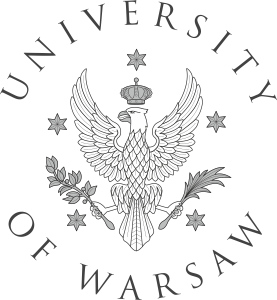The Centre of New Technologies invites to a webinar by
Paweł K. Mazur, PhD,
The University of Texas MD Anderson Cancer Center, USA
Title: Identification of oncogenic mechanisms driving lung squamous cell carcinoma development and progression.
Date: 15th April 2021 (Thursday)
Time: 15:00 pm (Central European Time)
Host: Paweł Niewiadomski, PhD,
Virtual seminar: https://us02web.zoom.us/j/86732978308
Meeting ID: 867 3297 8308
To subscribe to receive announcements about CeNT UW seminars or to unsubscribe please click here
CeNT-UW-Webinars-instruction-for-attendees
Abstract:
Amplification of chromosomal region 8p11-12 is a common genetic alteration that has been implicated in the etiology of lung squamous cell carcinoma (LUSC). The FGFR1 gene is the main candidate driver of tumorigenesis within this region. However, clinical trials evaluating FGFR1 inhibition as a targeted therapy have been unsuccessful. We identify the histone H3 lysine 36 (H3K36) methyltransferase NSD3, the gene for which is located in the 8p11-12 amplicon, as a key regulator of LUSC tumorigenesis. In contrast to other 8p11-12 candidate LUSC drivers, increased expression of NSD3 correlated strongly with its gene amplification. Ablation of NSD3, but not of FGFR1, attenuated tumour growth and extended survival in a mouse model of LUSC. We identify an LUSC-associated variant NSD3(T1232A) that shows increased catalytic activity for dimethylation of H3K36 (H3K36me2) in vitro and in vivo. Structural dynamic analyses revealed that the T1232A substitution elicited localized mobility changes throughout the catalytic domain of NSD3 to relieve auto-inhibition and to increase accessibility of the H3 substrate. Expression of NSD3(T1232A) in vivo accelerated tumorigenesis and decreased overall survival in mouse models of LUSC. Pathological generation of H3K36me2 by NSD3(T1232A) reprograms the chromatin landscape to promote oncogenic gene expression signatures. Furthermore, NSD3, in a manner dependent on its catalytic activity, promoted transformation in normal human lung epithelial cells and growth of xenografted human LUSC cell lines with amplification of 8p11-12. Depletion of NSD3 in patient-derived xenografts from primary LUSCs containing NSD3 amplification or the NSD3(T1232A)-encoding variant attenuated neoplastic growth in mice. This work defines NSD3 as a critical oncogene and reveals an actionable therapeutic vulnerability.

